Fang Lin
R2RNet: Low-light Image Enhancement via Real-low to Real-normal Network
Jun 28, 2021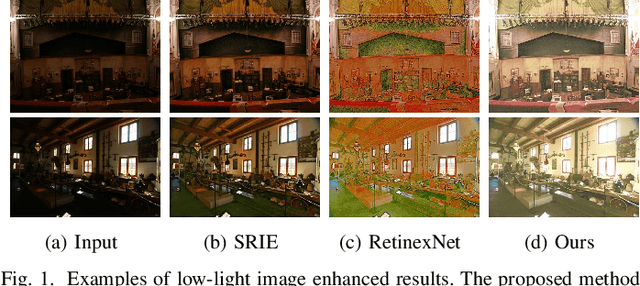
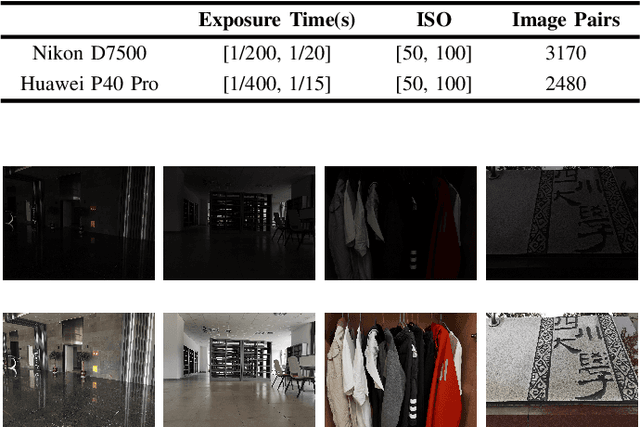
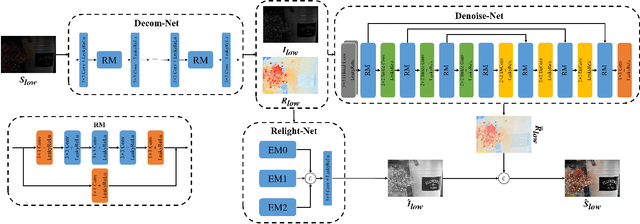
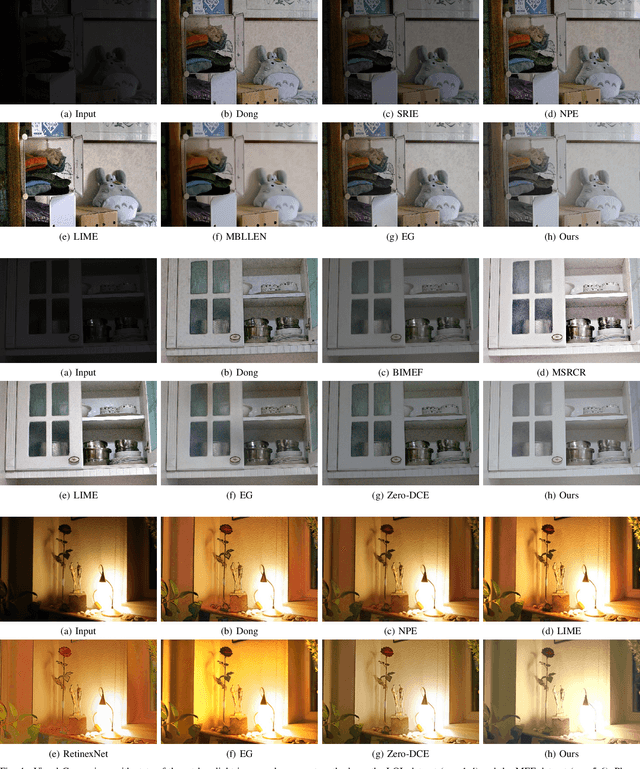
Abstract:Images captured in weak illumination conditions will seriously degrade the image quality. Solving a series of degradation of low-light images can effectively improve the visual quality of the image and the performance of high-level visual tasks. In this paper, we propose a novel Real-low to Real-normal Network for low-light image enhancement, dubbed R2RNet, based on the Retinex theory, which includes three subnets: a Decom-Net, a Denoise-Net, and a Relight-Net. These three subnets are used for decomposing, denoising, and contrast enhancement, respectively. Unlike most previous methods trained on synthetic images, we collect the first Large-Scale Real-World paired low/normal-light images dataset (LSRW dataset) for training. Our method can properly improve the contrast and suppress noise simultaneously. Extensive experiments on publicly available datasets demonstrate that our method outperforms the existing state-of-the-art methods by a large margin both quantitatively and visually. And we also show that the performance of the high-level visual task (\emph{i.e.} face detection) can be effectively improved by using the enhanced results obtained by our method in low-light conditions. Our codes and the LSRW dataset are available at: https://github.com/abcdef2000/R2RNet.
AgileNet: Lightweight Dictionary-based Few-shot Learning
May 21, 2018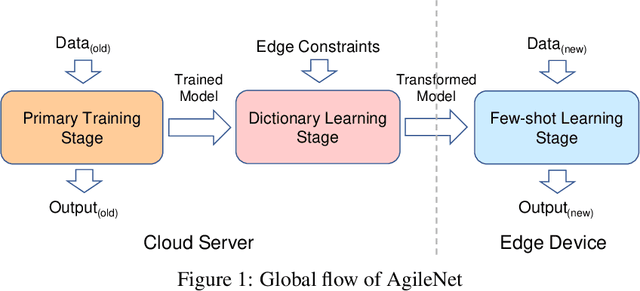
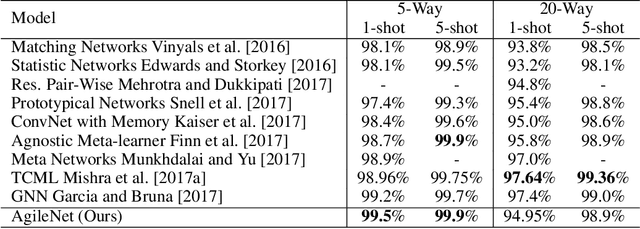
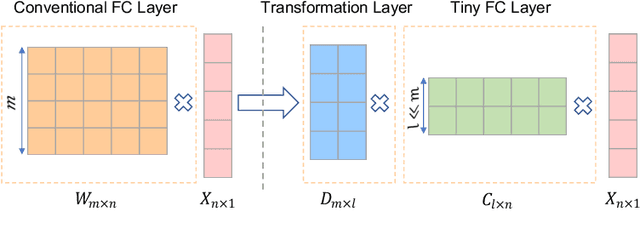
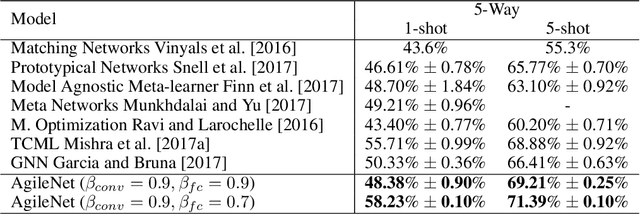
Abstract:The success of deep learning models is heavily tied to the use of massive amount of labeled data and excessively long training time. With the emergence of intelligent edge applications that use these models, the critical challenge is to obtain the same inference capability on a resource-constrained device while providing adaptability to cope with the dynamic changes in the data. We propose AgileNet, a novel lightweight dictionary-based few-shot learning methodology which provides reduced complexity deep neural network for efficient execution at the edge while enabling low-cost updates to capture the dynamics of the new data. Evaluations of state-of-the-art few-shot learning benchmarks demonstrate the superior accuracy of AgileNet compared to prior arts. Additionally, AgileNet is the first few-shot learning approach that prevents model updates by eliminating the knowledge obtained from the primary training. This property is ensured through the dictionaries learned by our novel end-to-end structured decomposition, which also reduces the memory footprint and computation complexity to match the edge device constraints.
 Add to Chrome
Add to Chrome Add to Firefox
Add to Firefox Add to Edge
Add to Edge